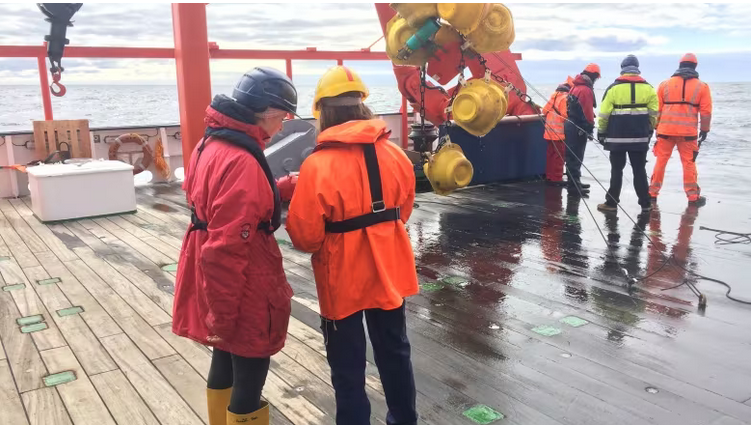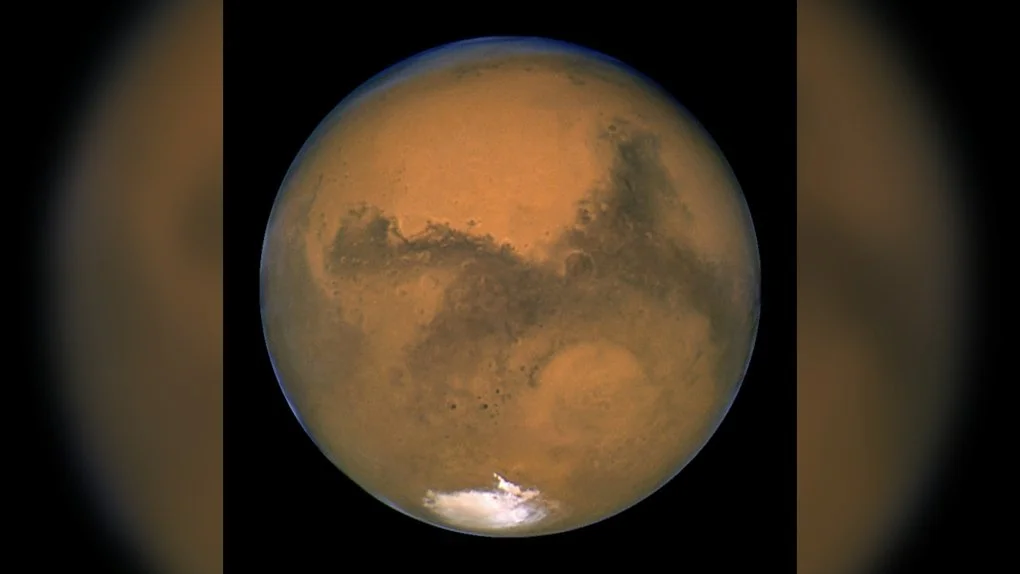The American Southwest is running out of freshwater. Recently, the Biden administration proposed to up-end legal rules and impose cuts to water allotments from the shrinking Colorado River. In arid southern Alberta, we understand the vulnerability. A century ago, the International Joint Commission — the body that rules on how Americans and Canadians co-manage water systems along the 49th parallel — grew out of a bitter dispute between settlers in Montana and Alberta over access to water.
AddThis Sharing Buttons Share to Twitter Share to Facebook Kelowna News iN VIDEO: How 'Canada's biggest water system' took Vernon from cattle to fruit
It was the Coldstream Ranch manager, Crawley Ricardo who, in 1905, hired engineer A.E. Ashcroft to look at creating an irrigation system from Jones Creek (now called Duteau Creek) with dams on Aberdeen and Haddo lakes in the hills south of Coldstream. The massive project started with the creation of the White Valley Irrigation and Power Company in 1906 to initially supply the Coldstream Ranch and Estates with water.
Montreal experiments with urban water features that could protect the St. Lawrence River
With both feet sinking into damp dirt, urban planner Pascale Rouillé surveys a narrow strip of land that will soon be used to not only retain runoff, but also be bursting with greenery that the community can enjoy. Tucked in next to a warehouse known as Bâtiment 7 in the Montreal neighbourhood of Pointe-Saint-Charles, near the intersection of Le Ber and Sainte-Madeleine streets, the terrain will become what has been dubbed a "blue-green alley."
Misbehaving culvert turns Orléans couple's backyard into a 'cesspool'
David Price hates when it rains. "It's just anxiety and stress," said the Orléans man, who for the past eight years has seen his Harvest Crescent backyard fill up with water whenever there's a downpour. The issue has to do with a city-owned culvert behind Price's home that he says is spilling water into his yard. When he bought the house in 2014, it wasn't a huge problem — but Price said it's been getting worse each year since then.
Environmental consultant provides update on fuel leak south of Quesnel
An update on the area of notification connected to the fuel leak at the Lhtako Gas & Convenience Store has been provided. SLR Consulting, the environmental consultant hired by Lhtako, says the area of notification for tap water sampling includes 36 separate legal properties off-reserve, and 1 on-reserve property. It says 30 off-reserve properties and the 1 on-reserve property have been tested as 4 of the legal properties share a well with an adjacent property and one has no building and is not occupied. SLR says to date the water on just 3 properties have been identified as having concentrations of gasoline-related parameters above Health Canada and provincial drinking water criteria.
PUC confirms asbestos pipes used for Sault drinking water
A very small percentage of water mains carrying drinking water to residents of Sault Ste. Marie have asbestos in them, PUC has confirmed. Although there is some debate on the subject, Health Canada has concluded that there is no evidence ingesting the substance is harmful to your health. Recently, an episode of the CTV television program W5 reported that asbestos-cement pipes are used in many municipalities across the country to deliver drinking water to residents.
German President's visit to UBC highlights clean energy and climate change solutions
The German President and delegation members also spoke with researchers working on challenges relating to clean energy, digital manufacturing, quantum materials and smart energy storage. Some of the highlighted projects include: A research group led by Dr. David Wilkinson, Canada Research Chair in clean energy and electrochemical technologies, is developing advanced electrochemical methods to produce clean energy and clean water with minimal carbon emissions
Esri helps Brandon modernize access to water network data
The municipality of Brandon, Man., in partnership with Esri Canada, recently implemented the geographic information system (GIS) software ArcGIS Utility Network (UN), which allows the city to see, manage and share vital information about its water network in real time. As part of the city’s strategy to modernize asset management, “the transition has immediately paid dividends,” according to a release. “With UN, staff can now visualize the most current and accurate information on the city’s water network on a dynamic map. Edits to data done in the field are instantly updated in the system and on the live network map in the office.”
British Columbians encouraged to prepare for possible spring flooding
With warming temperatures increasing the likelihood of rising water levels, British Columbians are encouraged to prepare for potential spring floods, while the Province, local governments and First Nations work together to keep people and communities safe. High-elevation snowpacks have not yet developed to the point that increased heat will cause significant runoff. At this time, forecasters are not anticipating a flood hazard over this current warming period for rivers lying in higher elevations, including larger rivers such as the Fraser River.
Ottawa grants $154M to Dalhousie-led study on North Atlantic and climate change
Dalhousie University in Halifax will lead what it calls "the most intensive investigation ever into the ocean's role in climate change" thanks to $154-million in federal funding announced Friday. The research program is getting a piece of $1.4 billion awarded to Canadian universities by the federal government through the Canada First Research Excellence Fund.
China's Mars rover finds signs of recent water in sand dunes
Water may be more widespread and recent on Mars than previously thought, based on observations of Martian sand dunes by China's rover. The finding highlights new, potentially fertile areas in the warmer regions of Mars where conditions might be suitable for life to exist, though more study is needed.
From freak weather to our water supply to optimism and action. Here are answers to your climate questions
Over the last four months, you've sent us over 300 climate questions as part of the Great Lakes Climate Change Project. We've researched the most commonly asked questions and given you answers about extreme weather, our water supply, and how you can both take action and stay optimistic in the face of the climate crisis. Before we jump in, some general takeaways from your questions. Most readers did want to hear about the many ways climate change impacts our lives, but also wanted a focus on solutions. A lot of questions were concerned less with what's new and more on breaking down the long-term processes that have brought us to this point. That's what we'll be focusing on here.
ALLISTER AALDERS: April has been dry, and it’s concerning
It has been a divided month weather-wise throughout April. Most of the month featured a blocking pattern that led to relentless clouds, fog, and drizzle for eastern Newfoundland, with fair conditions in other parts of that province and for most of Nova Scotia, New Brunswick and Prince Edward Island. There is one common trend across the entire region, though — it’s dry. How dry? While we have a few days left to add to these numbers, there’s little precipitation ahead for Atlantic Canada to finish the month.
Atmospheric rivers becoming so intense we need to rank them like hurricanes
Atmospheric rivers have been making headlines over the past couple of years. At their worst, they have been the cause of major flooding in California as well as devastating flooding in B.C.’s interior in 2021 — along with even more flooding in the province this past winter. And many experts have noted that global climate change caused by burning fossil fuels is making these events worse.
Canada oil sands leak heightens First Nations' calls to clean up tailings
In early February, Chief Allan Adam of the Athabasca Chipewyan First Nation in northern Alberta started fielding calls from community members after the provincial regulator revealed toxic wastewater had been leaking for months from a tailings pond at Imperial Oil's Kearl oil sands mine. Many in the community hunt and fish downstream of Canada's huge bitumen mines, and wanted to know if the game meat in their freezers was safe to eat.
Conservatives oppose potential Teck Resources takeover by Glencore
A trio of Conservative MPs called on Prime Minister Justin Trudeau and the federal government to be more responsive to attempts by Swiss-based Glencore to take over Canadian mining giant Teck Resources Ltd. through a shareholder deal. Kootenay-Columbia MP Rob Morrison was joined by Rick Perkins, MP for South Shore—St. Margarets and opposition critic for innovation, science and industry, and Foothills MP John Barlow, along with Elkford mayor Steve Fairbairn.
Accused testifies another worker installed plug that pinned teen under water
A man accused of criminal negligence in connection to a workplace death says he wasn't the one who set up the plug that pinned his worker under water. Jason King testified Thursday that Colin King, who is his cousin, installed the plug that ultimately slid out of a pipe and pinned Michael Henderson inside a hole in a clarifier as water filled it.
High risk of flooding around Dawson City, Yukon, as late spring thaw arrives
The latest ice breakup forecast for Yukon suggests there may be some flooding in the Dawson City area this spring, though not likely in town. "We assess the flood risk as low for Dawson City proper, the town itself, because it is protected by the dike," said Anthony Bier, the Yukon government's acting senior hydrologist. It's been a cool spring so far in the Dawson area, and a lot of snow fell over the winter. The amount of snow on the ground — called the snowpack — is higher than it usually is, meaning more water hitting the rivers once things start melting.
23 Saint Johners trapped laundry lint for a year to keep microplastics out of waterways
Taylor Kormann didn't know what to expect when she signed up to collect the goopy leftovers of her laundry cycles for a year as a part of a citizen science project for the Atlantic Coastal Action Program. "It was almost shocking to see what's coming out of the laundry," Kormann said. Kormann and 22 other Saint John residents spent 2022 collecting the wet lint from their washing machines to measure the microplastics their wash cycles were contributing to the city's water system.
Koreans protest Fukushima water release
Members of civic groups shout slogans during a rally calling for South Korea and the U.S. to express their objection to the Japanese government's decision to release treated radioactive water from the Fukushima Daiichi nuclear power plant, in Seoul, South Korea. The signs read "We oppose the release of treated radioactive water from Fukushima."





















